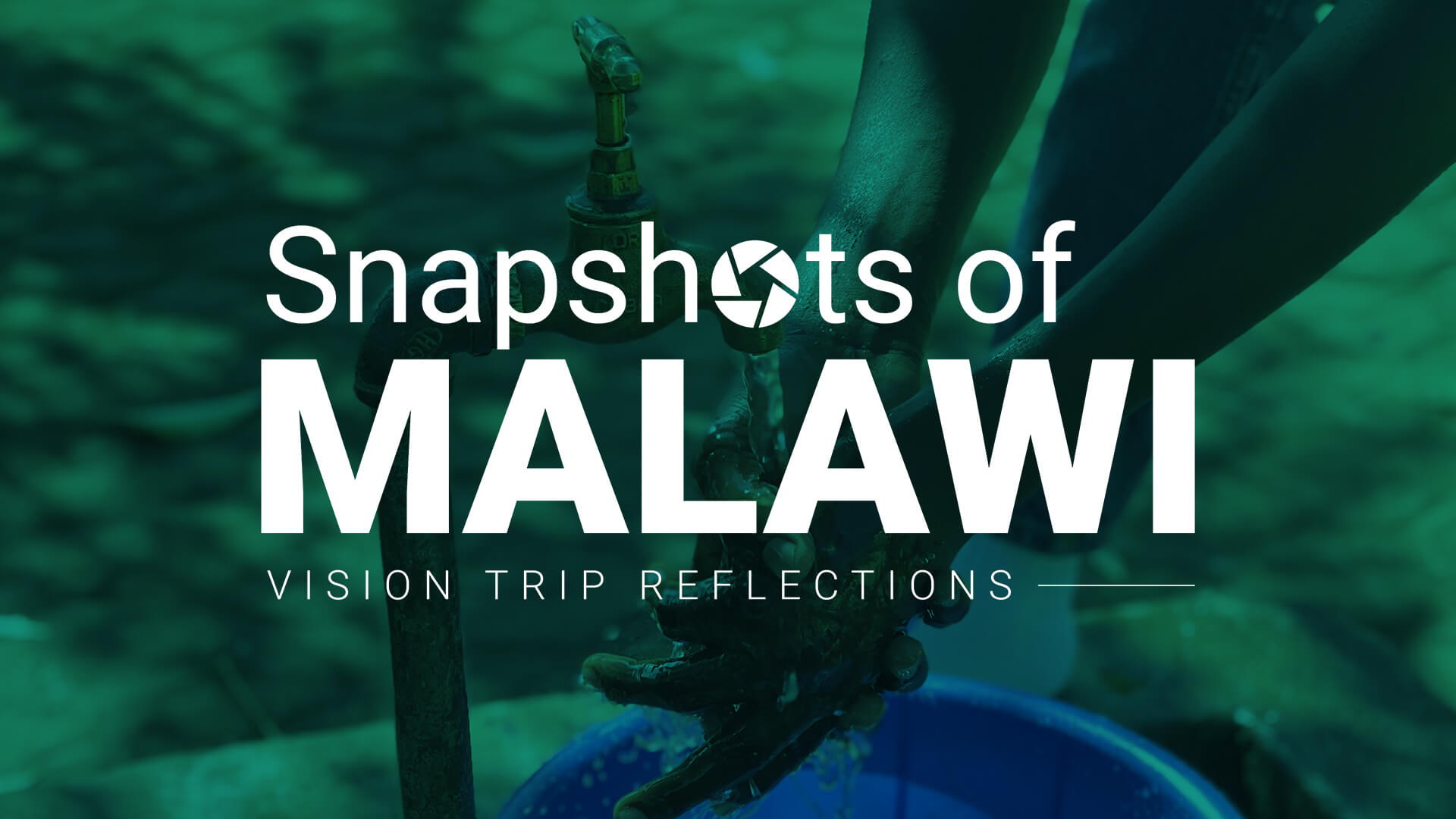
Snapshots of Malawi #2 – “The Numbers Have Faces”
June 16, 2021

June 16, 2021
How many times do you turn on a faucet in a given day? Have you ever counted?
Every morning when I get up, I turn on the shower, letting it run until the water turns hot. I flush my toilet. I brush my teeth over the sink. I make a pot of coffee. I do it all within an hour of waking up.
In the U.S., our water supply is so endless, we don’t even think about when we use it. (Here’s a challenge for you: For the rest of the day, count the number of times you turn on a faucet of any kind. I’d love to know where you land.)
It’s hard to imagine something so common being inaccessible. Clean water shouldn’t be a luxury—but for so many parts of the world, it is.
Our primary mode of transportation in Malawi was a bus, which gave us plenty of opportunities to see daily life going on outside our windows (literally). On almost every dirt road, we saw women and sometimes children carrying barrels of water on their heads.
You’ve probably seen all the statistics on the distances people walk for clean water. I have, too. The average person might walk almost four miles. But it was different seeing those actual people walking in front of me, knowing we were separated only by a bus and happenstance. For those people, the walk for water isn’t just a statistic; it’s a way of life.
Are we okay with that?
One of the things I’ve always appreciated about FCW—even before the Malawi trip—is their commitment to investing in the whole person. They make a tangible difference because they understand that true, Biblical love meets both physical and spiritual needs.
It is this foundational value that ensures all kids at FCW orphan homes have access to fresh, clean water onsite. In Zomba, the farthest kids have to walk for a drink of water is a few yards—the distance from their bedroom to the spout between the two orphan homes.
Even in Thyolo, which is a far more rural community, the well existed before the boys’ home was completed. It provides clean water not just to the people directly involved with the orphan home, but to the entire community. Fresh water is that important.
We know the statistics—but those numbers have faces. They have names and families. They should have clean water, too.
Because of the donors who support water and wellness initiatives, children have access to clean, fresh water every time they need it. To learn more about the difference these wellness initiatives make for kids’ health—and to see how you can get involved—check out this page on our website.
Looking for ways to get involved?
If you’re looking for a more hands-on approach to make a Kingdom impact, consider applying for one of our volunteer positions.
learn more
Receive Updates from Forgotten Children
We are looking forward to staying in contact with you so that you can receive the latest updates on what is taking place in the lives of vulnerable children in Africa and Asia.
website designed & developed by studio humankind | Photography by forgotten children worldwide